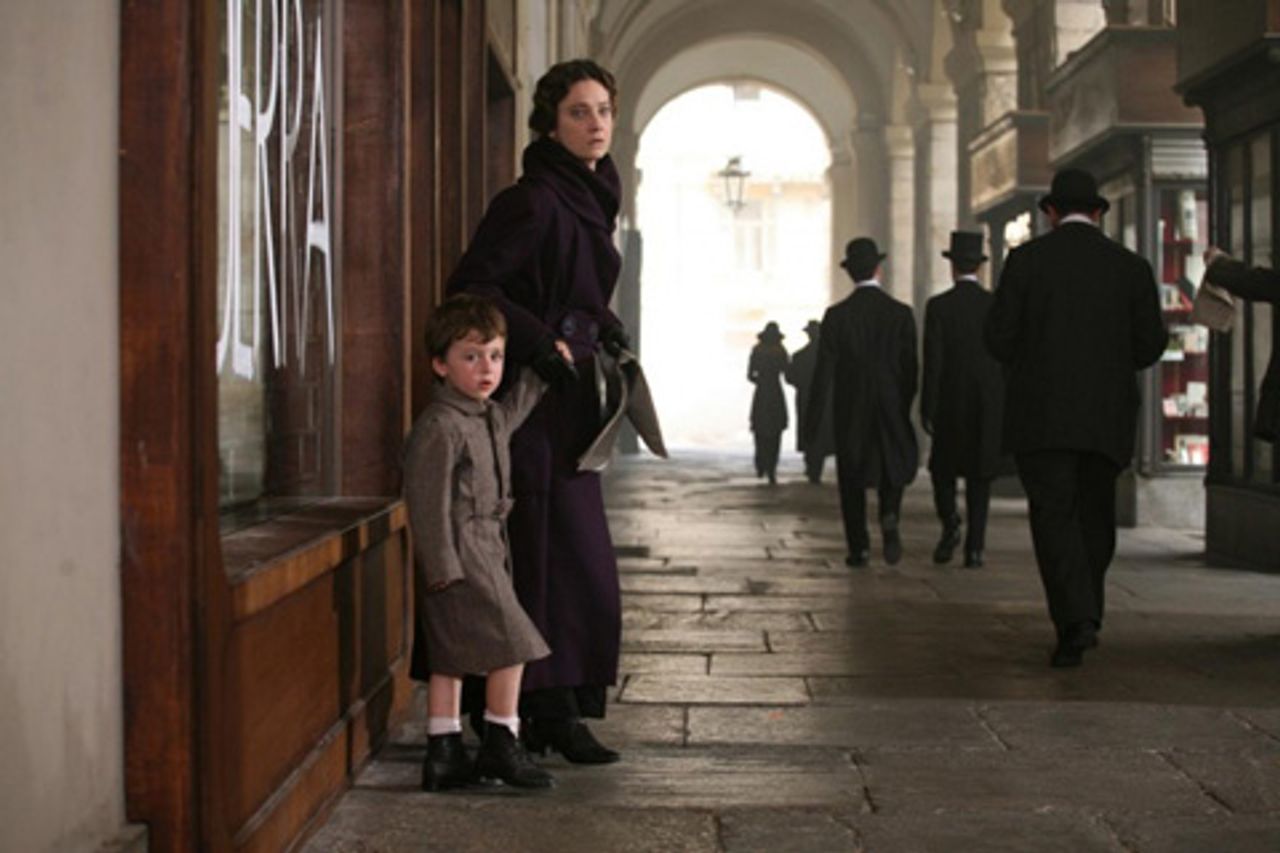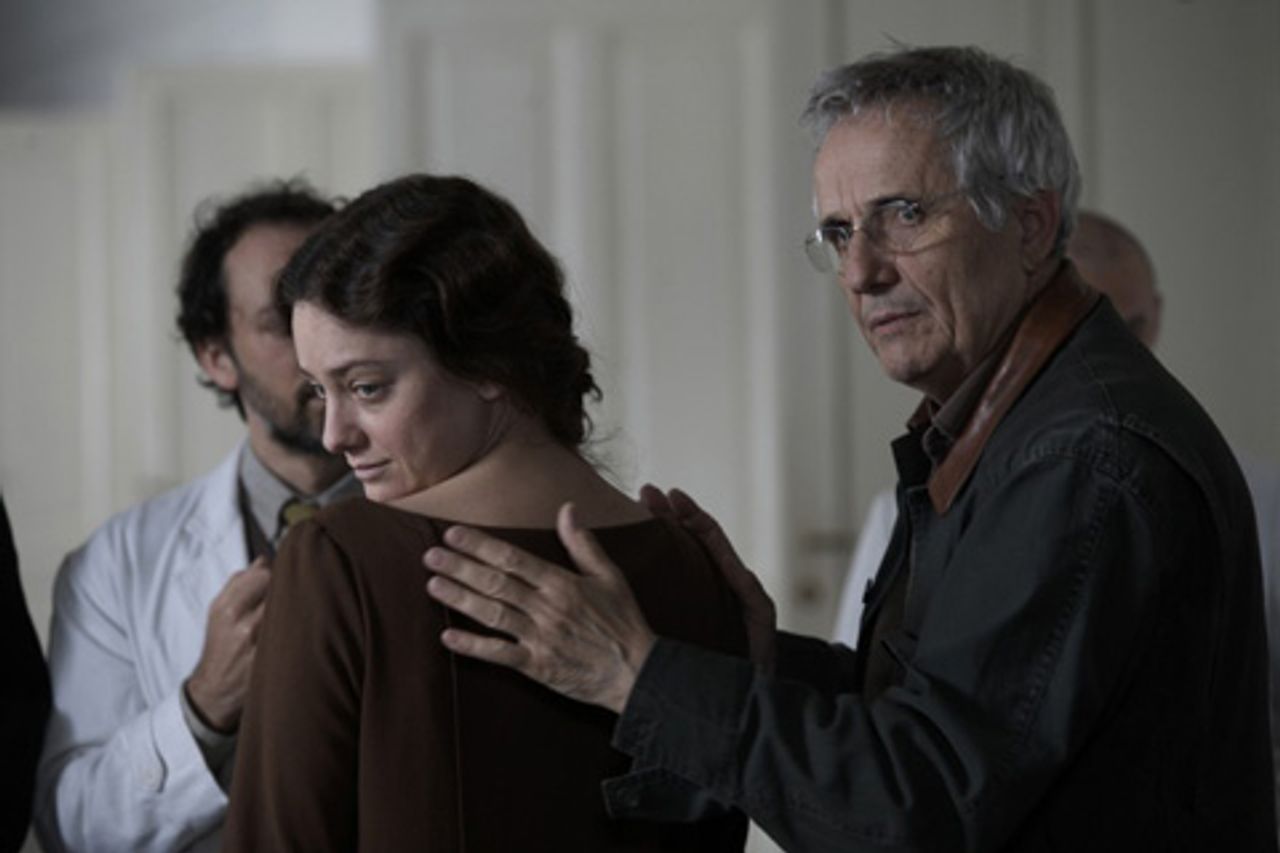Vincere, the latest feature by veteran Italian director Marco Bellocchio, is about Ida Dalser, the first wife of fascist dictator Benito Mussolini. The audacious work is currently on the international film festival circuit, after premiering at Cannes in May this year. The movie has received some well-deserved praise and last month won the best direction, cinematography, editing, art direction and acting prizes at the Chicago film festival. Unlike most of Bellocchio’s more recent work, Vincere has secured several international distribution deals and eventually will be released in US and Australian cinemas.
Vincere, or “to win”, gives valuable insights into Dalser’s tragic life, the deep class polarisation of Italy in the lead-up to and throughout World War I, and some sense of the brutal, all-encompassing state repression during the first decade and a half of Mussolini’s fascist rule.
The movie opens in 1907 with the first encounter between Dalser (Giovanna Mezzogiorno) and Mussolini (Filippo Timo), at that point a Socialist Party member and journalist, and a militant atheist. One of Mussolini’s earliest pamphlets was entitled God does not exist and the movie’s shows him defiantly challenging a group of Christian scholars. Dalser, originally from Sopramonte in Trento, then under Austrian rule, runs a successful French-style beauty salon. She is impressed with the young firebrand and falls in love.
Mussolini as editor of the social democratic paper Avanti drives up its circulation, but with the outbreak of WWI the Socialist Party splits into two factions—those calling for Italian intervention in the bloody imperialist conflict, and those rejecting any involvement.
Mussolini becomes a ferocious proponent of Italian intervention, seeing the war as an opportunity for Italy to wrest control of Trento and Trieste from the Austro-Hungarian Empire. Denounced as a traitor and expelled from the party, he establishes his own paper—Il Popolo d’Italia—to agitate for the war. Dalser sells most of her possessions to help finance Mussolini’s political activities and the couple are married and have a son. Mussolini, however, maintains a certain distance and refuses to completely commit himself to Dalser. He joins the army and is wounded in a training accident.
Dalser later discovers that he has married another woman—Rachele Guidi (Michela Cescon)—and there is an angry altercation between the two women at a church hospital where Mussolini is recuperating from his injuries. The future fascist dictator is beginning to be noticed by sections of Italy’s ruling elite, including King Vittorio Emanuele III, and has no intention of letting Dalser or anybody else stand in the way of his political ambition. Dalser publicly insists that she is Mussolini’s wife but is made persona non grata and then placed under virtual house arrest at her sister’s home. Government agents raid the house, destroying all evidence of her relationship with Mussolini and she is incarcerated in a mental asylum.
Dalser stubbornly refuses to be intimidated and writes to the Pope, the king, in fact, anyone in authority she hopes will listen and demands that she be officially acknowledged as Mussolini’s first wife. She vacillates between denouncing Mussolini as a traitor and deluding herself that he still loves her and is simply testing her loyalty. Dalser escapes the institution only to be recaptured and is packed off to San Clemente asylum in Venice where she is held until she dies in 1937.
 Ida Dalser (Giovanna Mezzogiorno) and her son Benitino (Fabrizio Costella)
Ida Dalser (Giovanna Mezzogiorno) and her son Benitino (Fabrizio Costella)Benitino, her son, is also hounded by government officials. The young boy is sent to boarding school, told that his mother is dead and later “adopted” by a local fascist police chief. Benitino insists that Mussolini is his father. Under constant surveillance for the rest of his life, he too is committed to an asylum where he dies in 1942, aged 27.
Vincere is a compelling work by Bellocchio, an interesting and significant director with a 45-year career in Italian cinema. Born in 1938, he studied at Italy’s prestigious Centro Sperimental di Cinematografia and then the Slade School of Fine Art in London, where he wrote a thesis on Michelangelo Antonioni and Robert Bresson before directing his first feature—Fists in the Pocket (I pugni in tasca) in 1965.
Fists in the Pocket is a dark and confronting story about a dysfunctional Italian middle class family and rightly regarded as one of the classics of post-WWII Italian cinema. It was denounced by sections of the Christian Democratic Party who wanted it banned, claiming it to be a slur against the Italian family.
Although Bellocchio maintained his creative output during the next three decades, the results were often patchy and he did not return to artistic form until the mid-1990s with The Prince of Homburg (1997) and then his sensitive 1999 adaptation of The Wet-Nurse, a Luigi Pirandello story. In 2003 he wrote and directed Good Morning, Night about the Red Brigades’ kidnapping and murder of former Italian prime minister Aldo Moro in 1978 and followed this with Il regista di matrimoni (The Wedding Director) in 2006, which pokes fun at Italian filmmaking, marriage, the Catholic church and other Italian institutions.
Vincere highlights Bellocchio’s artistic strengths, and some of his weaknesses. The movie is characterised by its visceral imagery and strong performances, particularly from Giovanna Mezzogiorno, and a palpable anger over the destruction of the lives of Dalser and her son. Mussolini’s regime often used psychiatric institutions to incarcerate and silence its opponents.
 Director Marco Bellocchio (right) with Giovanna Mezzogiorno
Director Marco Bellocchio (right) with Giovanna MezzogiornoBellocchio and cinematographer Daniele Ciprì’s use of Futurist art movement stylings and the seamless integration of original footage from the 1920s and 30s—Italian soldiers heading off to war; Mussolini addressing mass rallies and his 1929 reconciliation with the Catholic Church; along with scenes from Charlie Chaplin’s movie The Kid—is masterful. All this is underpinned by a dramatic, almost operatic, musical soundtrack by Carlo Crivelli. Vincere provides a sense of the extreme class tensions during WWI with demonstrations and street-fighting between pro- and anti-war workers. One clash erupts in a cinema during newsreel screenings of Italian involvement in the war.
The asylum scenes are both tragic and beautiful, including an extraordinary moment when Dalser climbs up the bars of the asylum in the depth of winter and flings out her letters declaring that she is Mussolini’s wife and protesting her treatment. Another scene provides a damning exposure of the attitude of those sections of the Italian middle class who had accommodated themselves to Mussolini’s dictatorship. One psychiatrist tells Dalser to adapt herself to the existing political reality. This government will not last forever, he complacently declares, so you must become a great actress and pretend to be a “good fascist woman”. She rejects his cowardly advice.
Vincere, of course, is not flawless. Mussolini’s political evolution—from a militant anti-clerical socialist to a pro-war demagogue and a fascist dictator—is never fully explored. Bellocchio provides little sense of the political forces that shaped Il Duce and why. The movie heavily focuses on psychological factors—Mussolini’s ambition, ego, ruthlessness and other personal characteristics but his reaction to the revolutionary movement of the Italian working class following WWI is absent. This leaves the door open for all sorts of confused and wrong-headed interpretations.
One film writer praising Vincere, for example, has suggested that Dalser was an “instinctive anti-fascist” and that Italians, “like Dalser, all too eagerly succumbed to his [Mussolini’s] toxic allure”. This is false.
Mussolini took power not because ordinary Italians “eagerly succumbed to his toxic allure” but because the extraordinary post-WWI revolutionary movement of the Italian working class was blocked by the Socialist Party leadership. The young and inexperienced Italian Communist Party, founded in January 1921, proved incapable of mobilising workers against this betrayal and leading them in the struggle for a workers government and a socialist overturn.
Mussolini and his fascist Black Shirts, with financial and political support from the king, the military and Italian industrialists, stepped into the political vacuum and set to work murdering and intimidating the most class-conscious and militant workers. Britain was just one of the many imperialist powers that praised this bloody operation, with figures like Winston Churchill publicly hailing Mussolini as a hero and cheering from the sidelines.
As Trotsky explains in his brilliant 1932 essay, What Next? Vital question for the German proletariat: “Italian fascism was the immediate outgrowth of the betrayal by the reformists of the uprising of the Italian proletariat. From the time the [first world] war ended, there was an upward trend in the revolutionary movement in Italy, and in September 1920 it resulted in the seizure of factories and industries by the workers. The dictatorship of the proletariat was an actual fact; all that was lacking was to organise it and draw from it all the necessary conclusions. The social democracy took fright and sprang back. After its bold and heroic exertions, the proletariat was left facing the void.”
As Trotsky warns, “The disruption of the revolutionary movement became the most important factor in the growth of fascism”. Mussolini took power, saved Italian capitalism and over the next two years consolidated his dictatorship. A detailed understanding of these political dynamics is necessary for any filmmaker or writer attempting to create stories and characters of lasting depth from this historical period.
Notwithstanding Bellocchio’s tendency to shy away from these questions and to focus on personal psychological factors, his latest movie has integrity and is an important artistic contribution. Hopefully it will encourage other filmmakers to explore other aspects of this period in more detail. As the hysterical response to Vincere by extreme-right commentators and demagogues, such as the neo-fascist parliamentarian Alessandra Mussolini, Il Duce’s granddaughter, indicates, the unearthing of Italy’s real political history remains a crucial political and artistic question for the Italian filmmakers and the working class as a whole.
